The story of our four month expedition sailing the Kimberley.
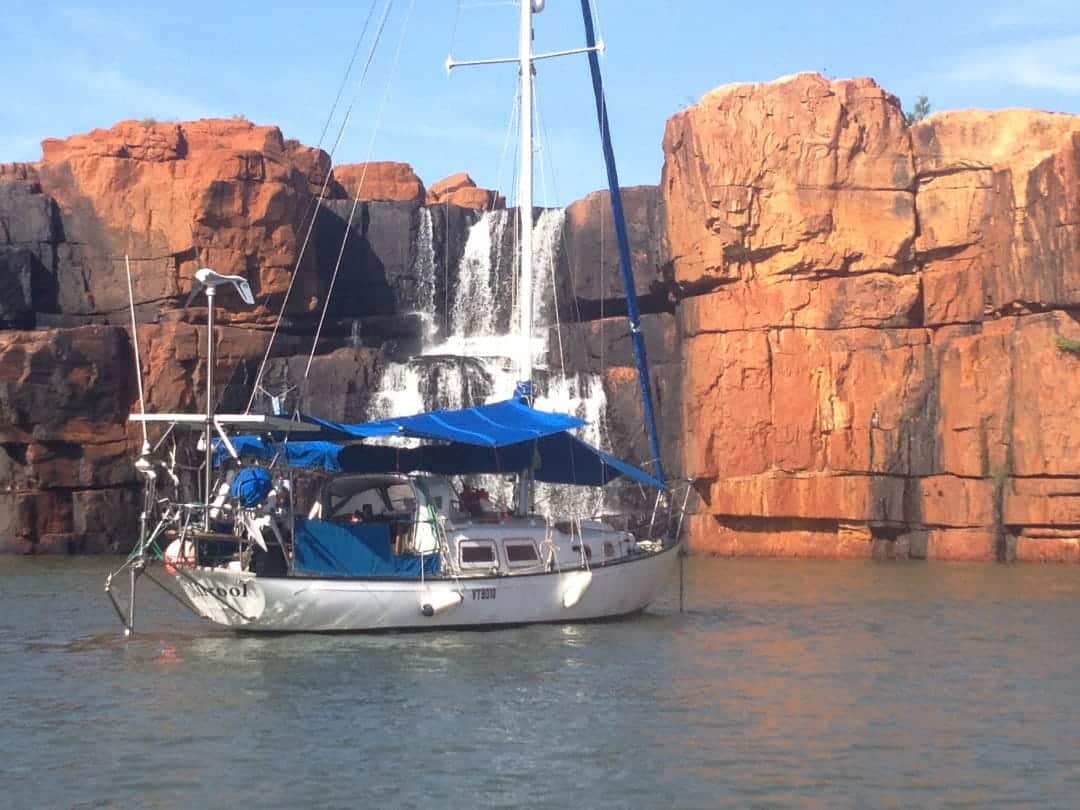
Last year, we set about doing what many people dream of doing. Namely, cut the ties to civilisation and disappear into the remote wilderness.
For four months we explored the Western Australian Kimberley region with barely any contact with other people and with no resupply of any kind.
On first impressions, the far north of Western Australia looks to be incredibly arid and hostile and many believe that water will be in short supply.
The truth is that there are many waterfalls that are accessible by boat; some cascading directly into the sea within spectacular gorges.
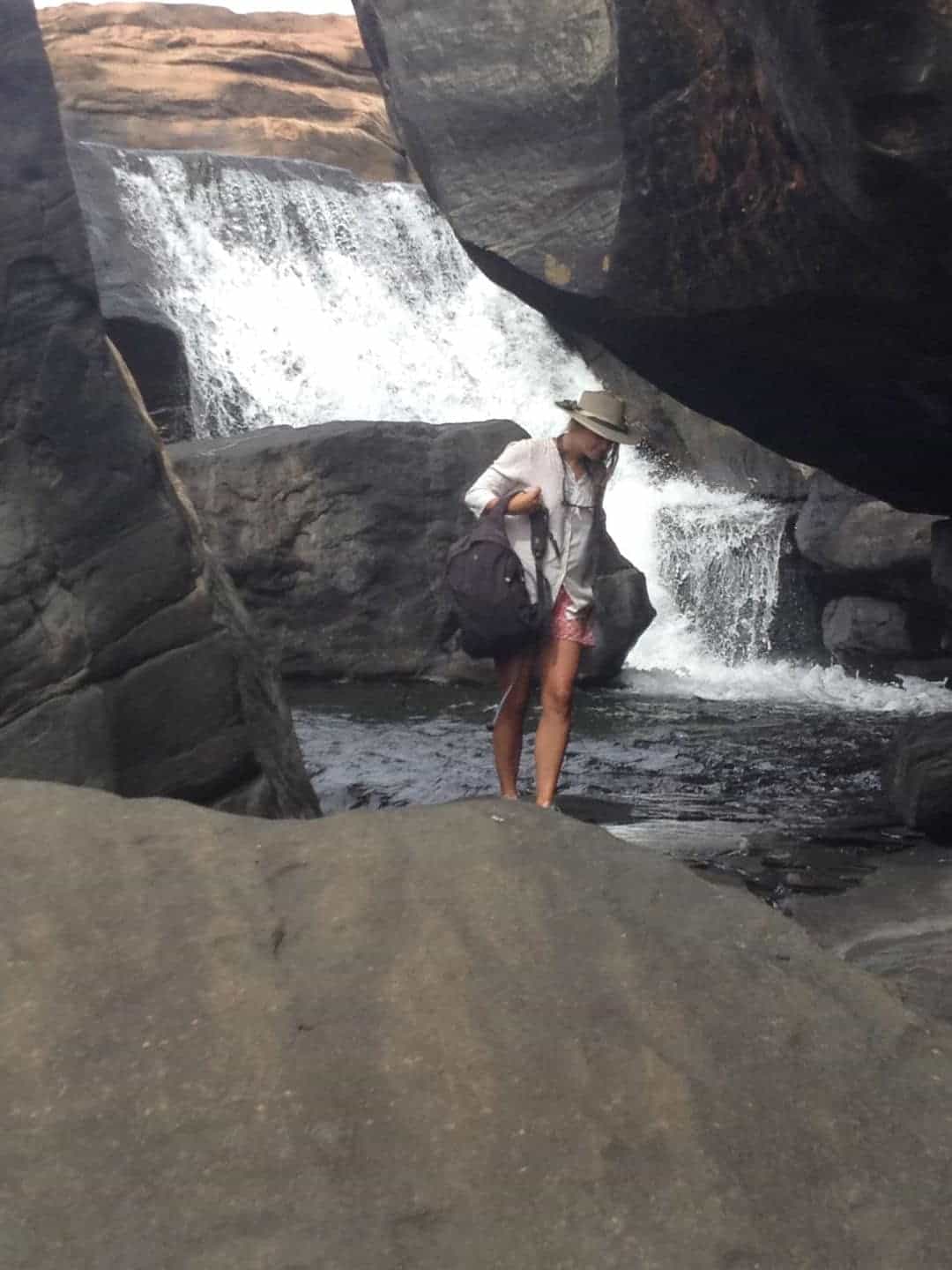
Because of the isolation of the area and the desert guarding the Kimberley to it’s east, there are few introduced animals here and most of the waterways are free of water-borne parasites and diseases.
We could sometimes park the yacht directly under a waterfall and take our fill of pure clearest water as it fell in a glittering curtain on the bow.
When we provisioned for our trip north along the coast, we stocked no meat. The bulk of our stores consisted of dried grains, pulses and legumes.
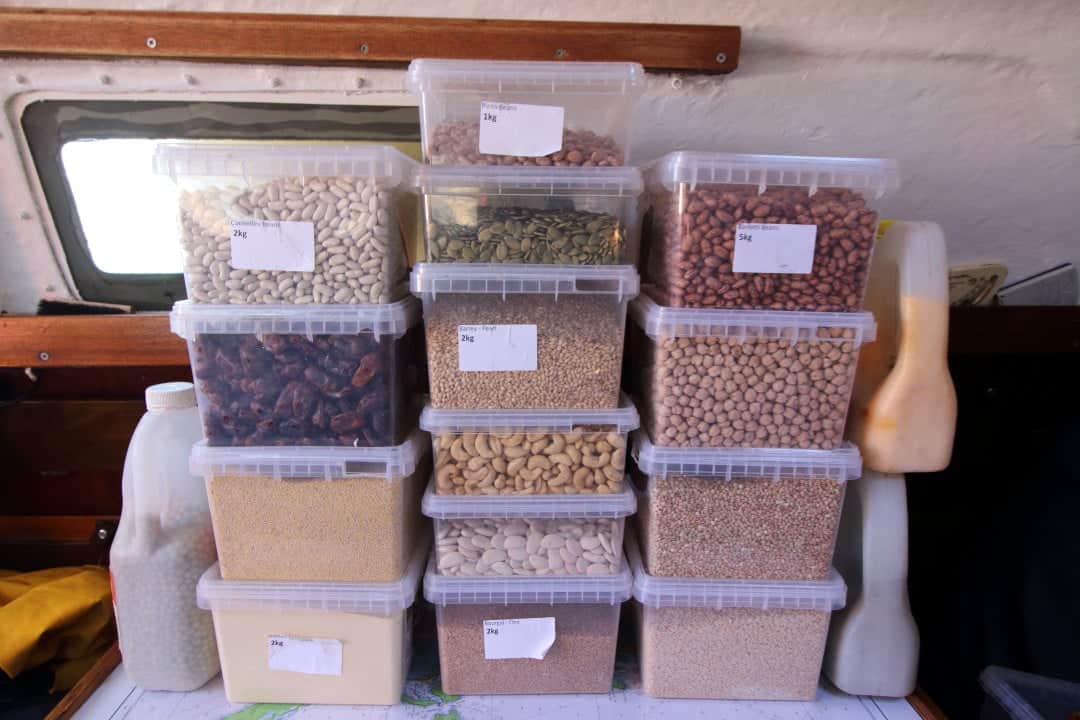
These foods are versatile in that they can be prepared straight, sprouted for fresh greens or ground for various flours in our hand-mill.
Several types of vinegar were included for use in pickling brines and dressings along with a good store of salt and brown sugar. Fish fillet dusted with 50:50 mix of salt and sugar for 24 hours and then smoked is a fine delicacy.
Milk powder was included for making yoghurt and cheese and to compliment the vast store of tea on board. We bought 10kg of honey from a backyard apiarist before leaving from Perth.
An online bulk wholesaler provided dry fruit, nuts and spices at a budget price. In any case, we spent around two thousand dollars in March of 2017 and came out of the Kimberley with stores aplenty.
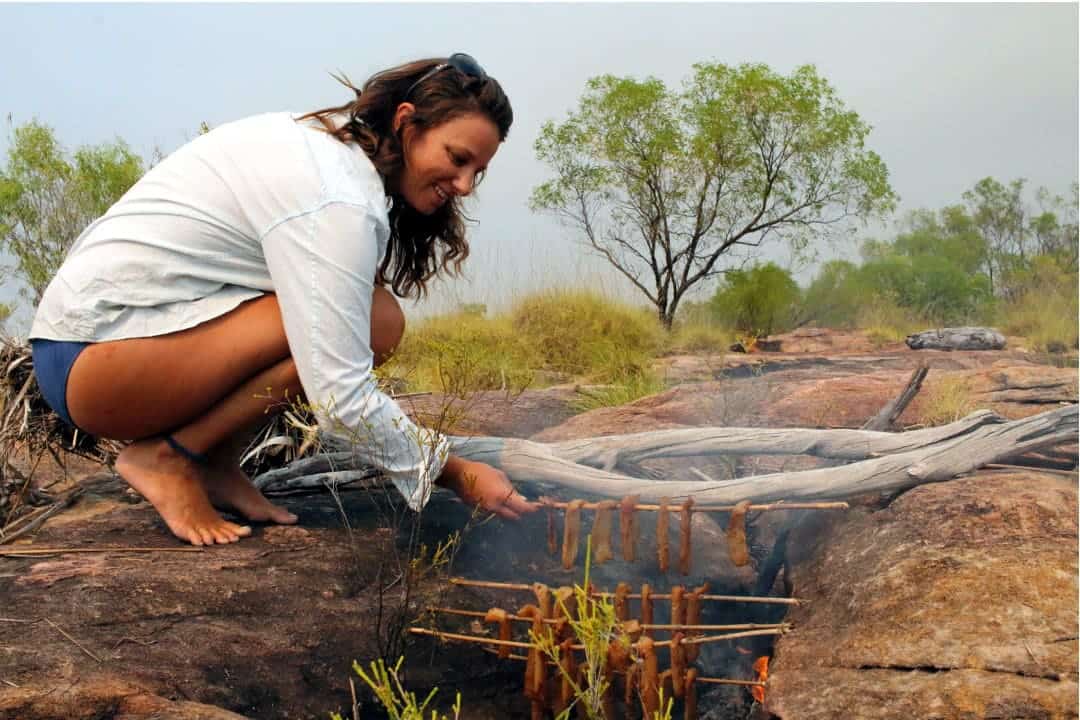
We didn’t lead a vegetarian life though. Along the way, we depended on our ability to catch fish and forage other seafoods. Plump oysters were revealed on the low tide. The best grounds to find them being low rocky shores immediately adjacent to mangroves.
Pascale had a particular eye for finding small clams in the muddy channels of shorelines. While Barramundi and Mangrove jack are regarded as a dream capture for some, we came to accept them as regular gifts from Neptune upon our plates.
Any time we sailed to a new anchorage, we trolled a bibbed lure behind us. I had invested in a decent rod and reel especially for this purpose and we rarely made a trip without a solid Mackerel ending up in the fridge. In short, it was a seafood banquet almost every day.
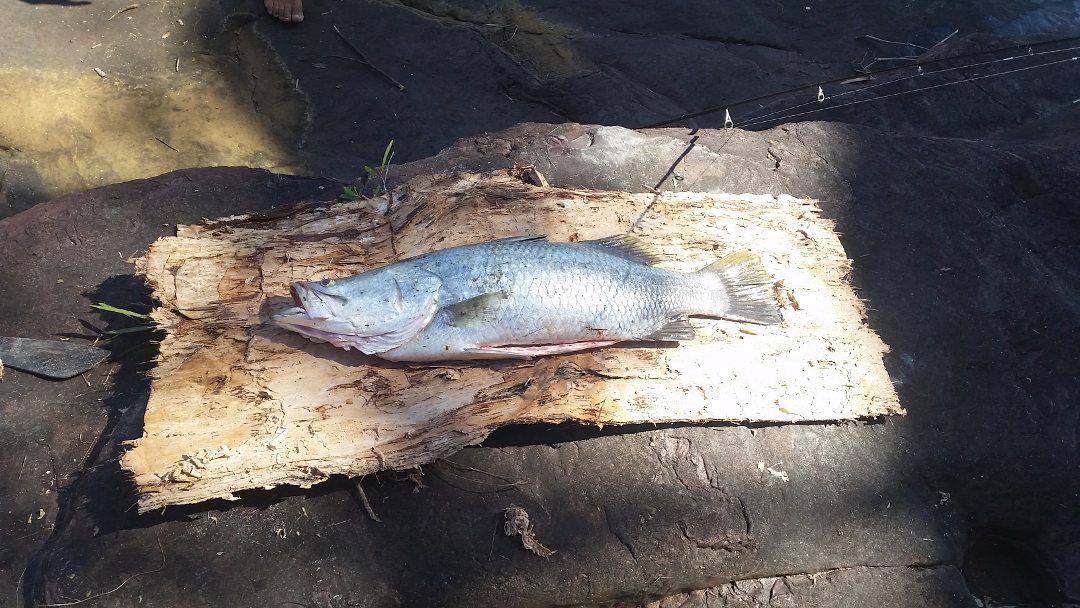
Exploring the Kimberley itself had certain risks inherent to it. The primary threat came from large Estuarine Crocodiles that ruled every aquatic habitat unless barred by towering falls.
They are called Saltwater Crocodiles but will happily occupy fresh water billabongs and the upper reaches of rivers, dining on birds and wallabies.
Our attention quickly became focussed on our environment as a side effect of the respect these prehistoric predators command.
With good safety discipline, we found it possible to enjoy the presence of these creatures wherever we travelled.
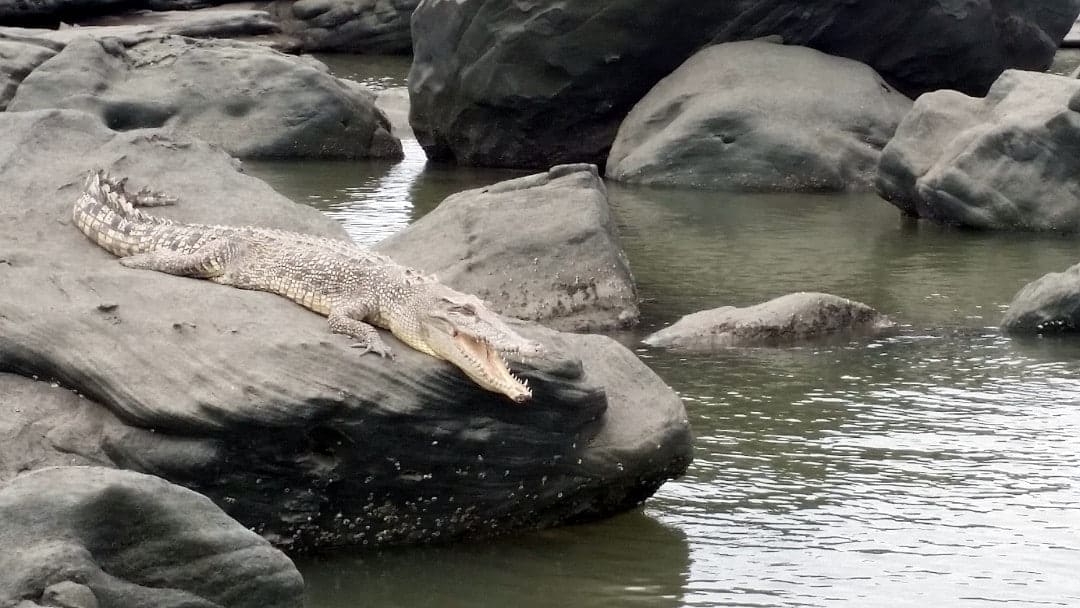
The other risk we tried to guard against and all outdoor people come across was doing something stupid. A sprained ankle due to careless boulder hopping, getting lost or stumbling through thick undergrowth likely to conceal a snake could all have very dire consequences so far from help.
We accepted that vigilance can slip and not all snakes stay in the scrub so we always explored with a survival kit of sorts with us. My backpack was permanently stocked with a versatile first aid kit for cuts, sprains and snake bite.
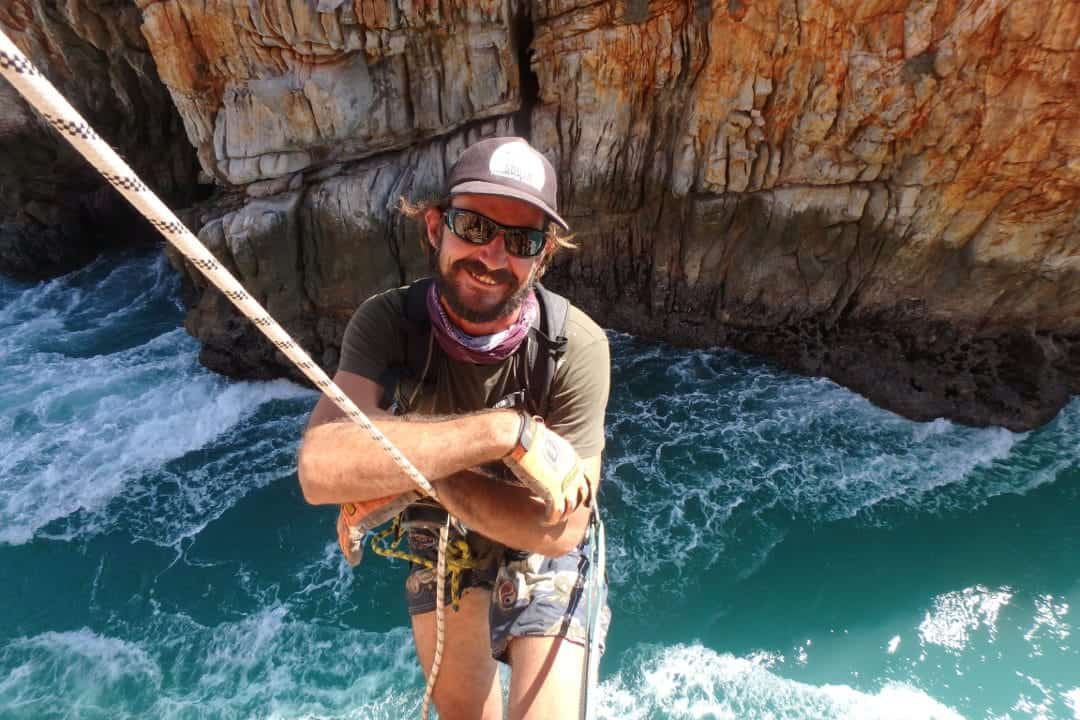
There was a carbon steel knife and Swedish steel that could generate a hot spark for fire making as well as a couple of lighters. Fire when you are lost is a great comfort.
A sharpener for the knife, compass and note pad and a good supply of strong light string rounded out the gear we may need in case of getting lost.
The most important bit of kit was a personal locator beacon (PLB). I say most important because while getting lost is pretty easy to sort out with patience, a compound fracture of the leg or treating a snake bite means that the casualty must be splinted and immobilised.
Getting emergency services to the site then becomes a real matter of life and death so regular testing of the PLB and checking it’s inclusion became routine.
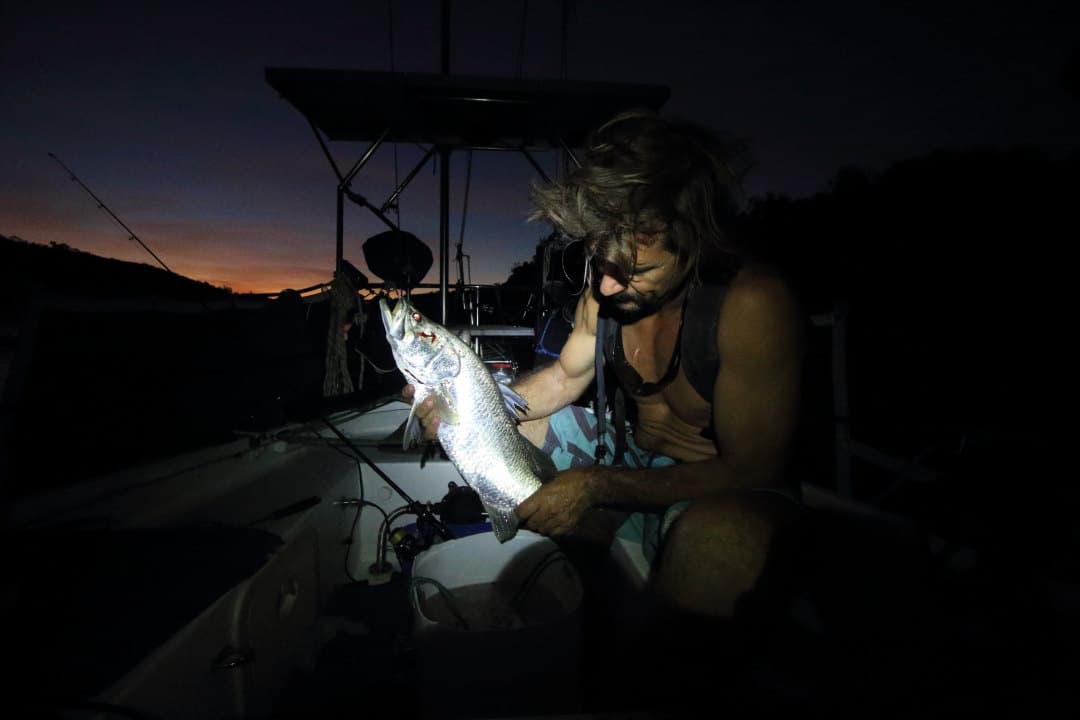
An aspect of the Kimberley that we didn’t anticipate but brought us deep satisfaction, was finding ancient artwork in caves and overhangs throughout the region.
We later researched this and found age estimates for these paintings reaching back 40,000 years. To see that that they are still visible today and depict people and animals in the most graceful way filled us with awe.
Our method for finding artwork sites was to look around as we moved through country and inspect any shelters that looked appealing to us from the viewpoint of aspect and prevailing breezes as well as proximity to food and water sources.
It was a very successful approach and I felt in tune with the environment more and more as we surveyed the landscape for these most basic of human needs.
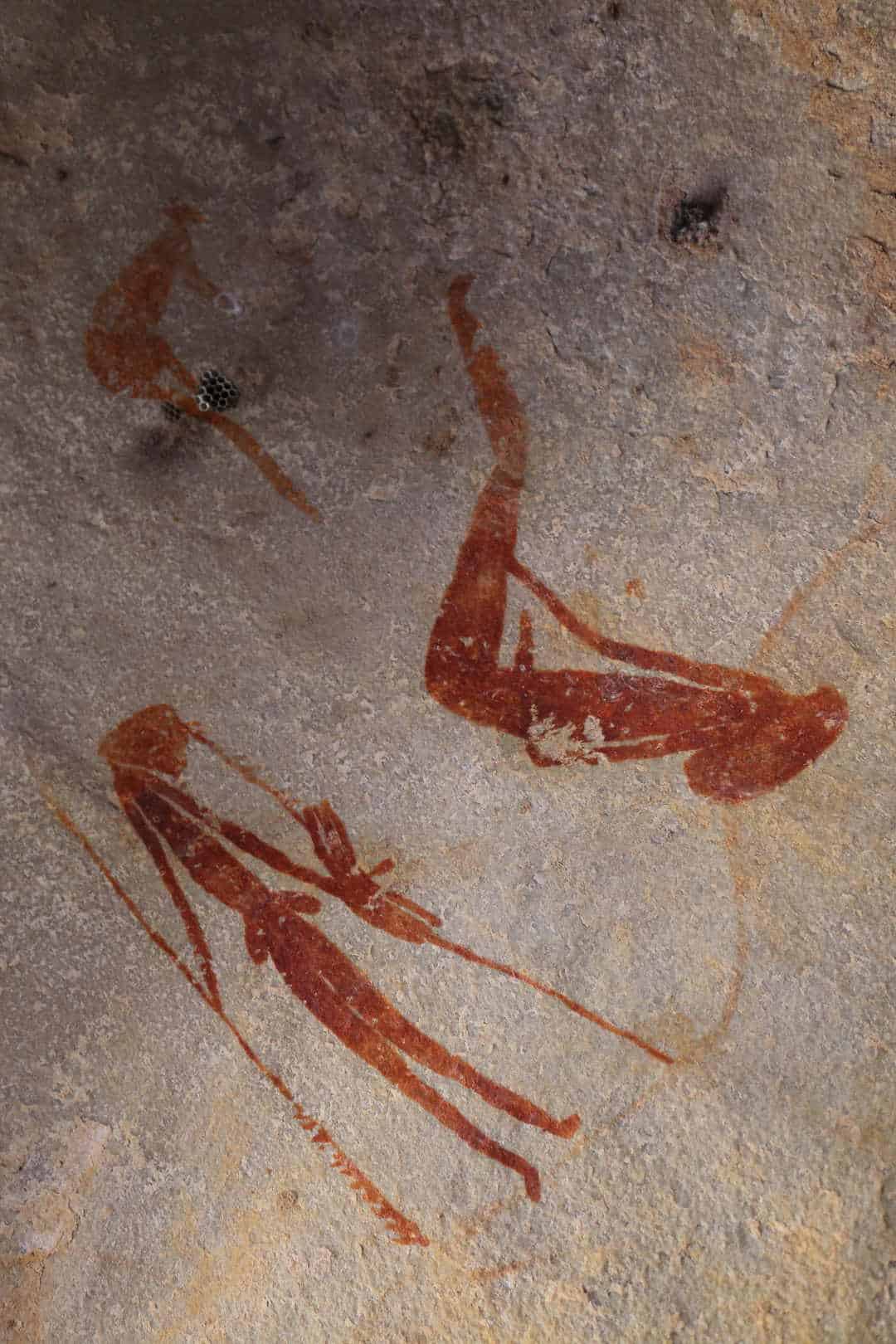
As the seasons shifted to the end of the dry season or winter, we headed north for Darwin to prepare for the monsoon shift which would be bringing welcome rains and destructive cyclones.
I look back on our time Sailing the Kimberley and find it was one of the greatest experiences I’ve had.
We can now look forward to a voyage across the top-end of Australia through the Northern Territory which promises another dramatic environment and of course, some of the best fishing in the world!
Check out our “Sailing the Kimberley” playlist on YouTube.
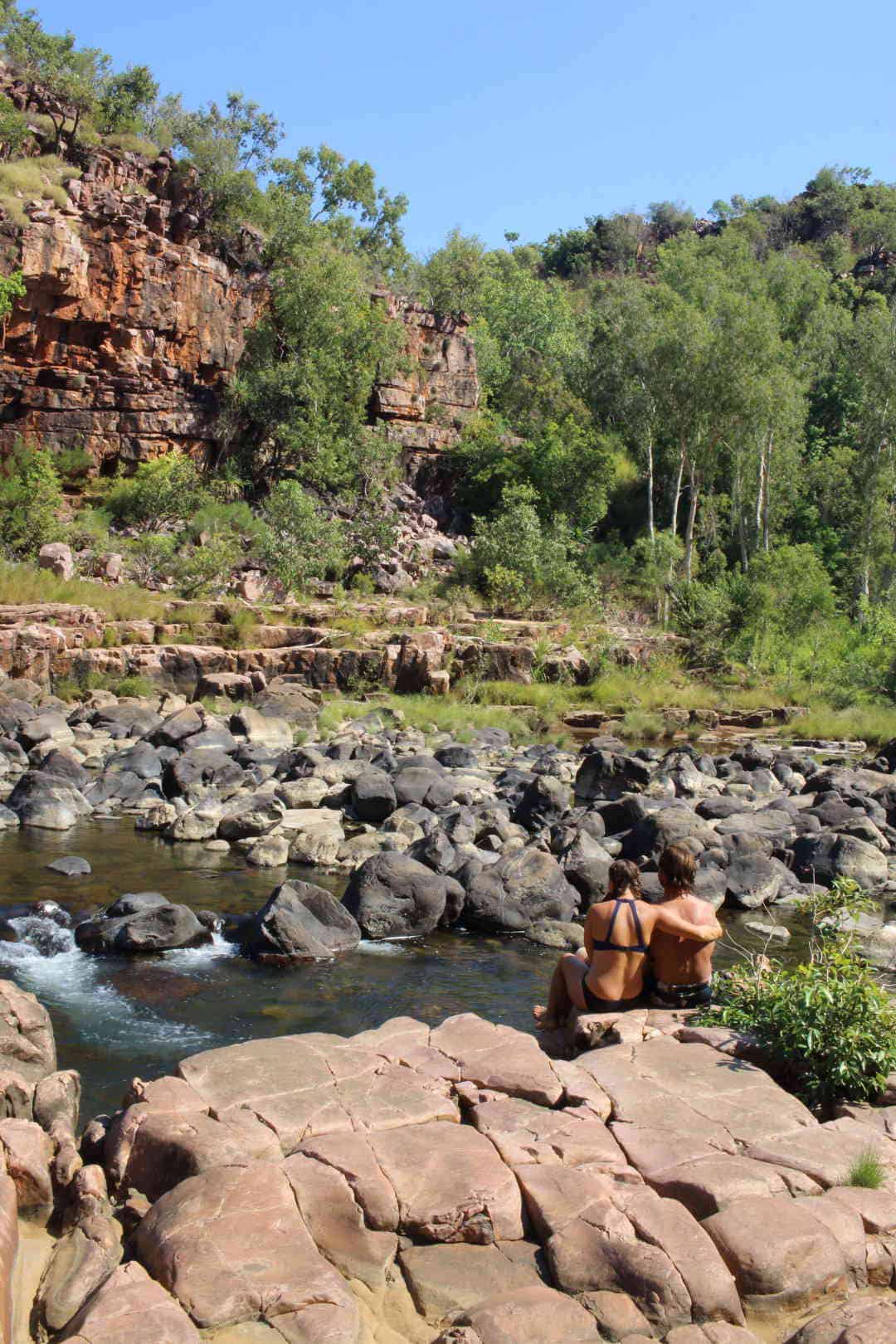

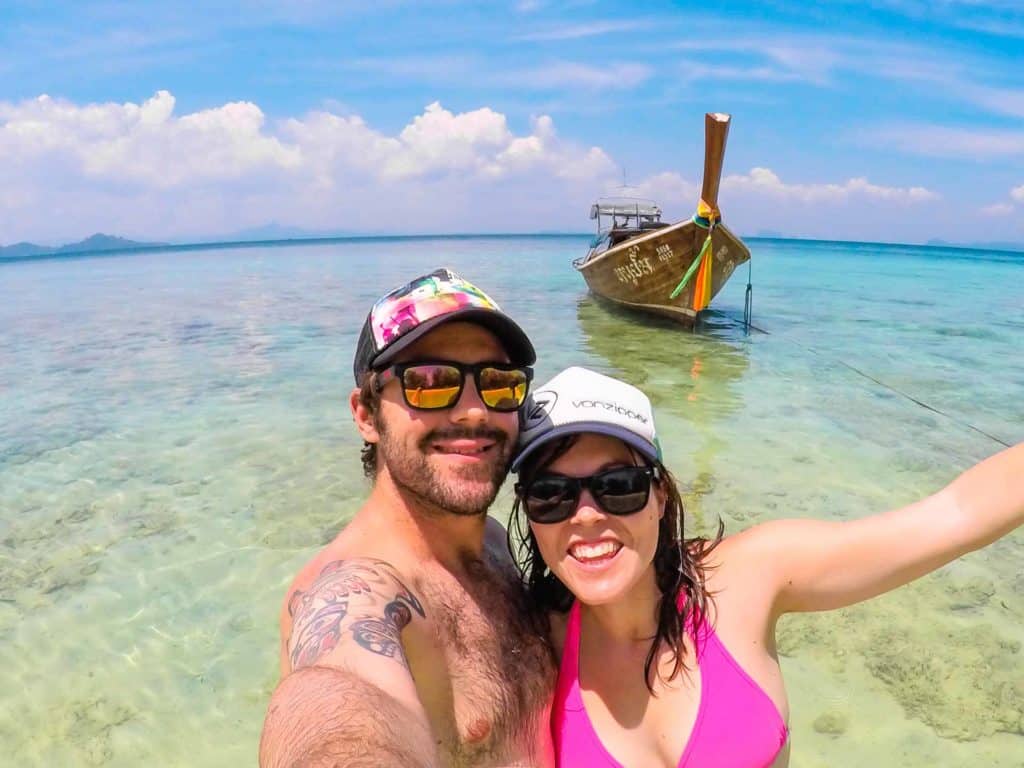
5 thoughts on “Sailing The Kimberley – Our Four Month Expedition”
Ahhh, it was a trip down memory lane!
Loved yr pics, particularly the GwionGwion shot (I kno that spot well and you did well to find it!). Good advice about yr back pack, we were the same and never left the boat without it.
It’s an amazing place, and defies a good description, you really have to go there to appreciate its remoteness and beauty.
It changed our lives, ( literally!) and left our city jobs as soon as we returned to civilisation.
Throw off the lines, and get up there!
Fair winds,
Bob.
So glad this article could take you down memory lane. Glad you enjoyed it. 🙂
Having followed Troy and Pascal on their remote journey it has been a real eye opener to what you can achieve on a budget and careful planning. Love the provisioning photos and exprience
I envy you would love to have my own yacht someday 🙂 great pictures btw.
Us too Matt. It looks amazing. Troy has written a great article.